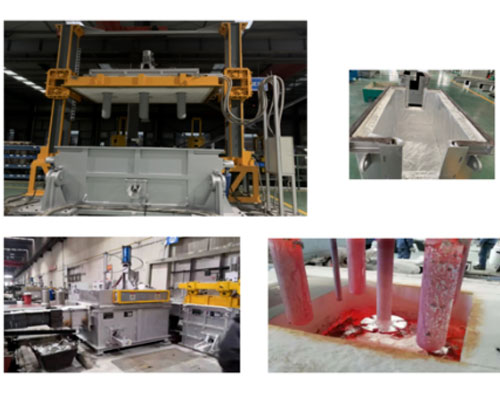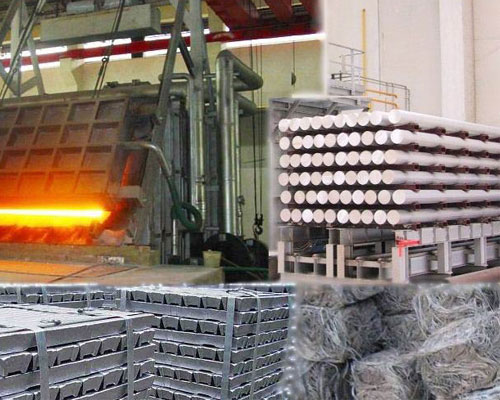With the development of the aerospace field, the comprehensive performance of high-strength and high-toughness aluminum alloys in civil passenger aircraft, aerospace vehicles, military aircraft, and other fields is getting higher and higher. Basically, the alloys are 2XXX and 7XXX aluminum alloys. In recent years, domestic aircraft materials have basically used 2024, 2124, 7050/7150/7055, etc. To obtain high-performance aluminum alloy materials, the metallurgical quality of alloy ingots is crucial. So the aluminum ingot casting technology is also important.
Key control points for Aluminum Ingot Casting: Mold design and preparation; mold surface condition and maintenance; lubrication; water flow; ingot head; ingot bottom automatic filling; wiper; process parameters.
Aluminum Ingot Casting Technology
Sources of metallurgical defects
1) Alkali metals, electrolytic aluminum process, primary aluminum; recycled metals; fluxes; metal additives, etc.
2) Sources of hydrogen, moist auxiliary materials, fuel by-products, water vapor in the air, etc.
3) Sources of slag, oxides, refiners, salts, etc.
Main points of smelting process control
Melting temperature: no more than 750°C, to prevent the generation of spinel. Strictly control the temperature of alloying, especially the temperature of adding Mg and Zr. Equipped with electromagnetic stirring in the smelting process to ensure the uniformity of the melt. Control the matching of furnace load and refining process (rotor speed, ratio of chlorine gas) to ensure good refining effect and not produce excessive chloride.
Online degassing and filtering

Grain Refinement
In order to prevent ingot cracks and coarse grains, it is necessary to add Al-Ti-B or Al-Ti-C grain refiner to the aluminum alloy melt. Adding in the linear flow tank, the quality of Al-Ti-B or Al-Ti-C needs attention. The added amount will be adjusted according to the alloy and the product. Generally, the added amount is 1Kg/t metal.
Aluminum Ingot Casting Technology
Advanced melting casting equipment is the prerequisite for ensuring high-quality ingots. Liquid refining or aluminum liquid purification includes all aspects of raw materials, smelting, standing, degassing, slag removal, and filtration. The cleanliness of the aluminum liquid or the size and content of the slag inclusion will seriously affect the product quality. You must fully understand the details of each process and strictly implement the relevant steps.

